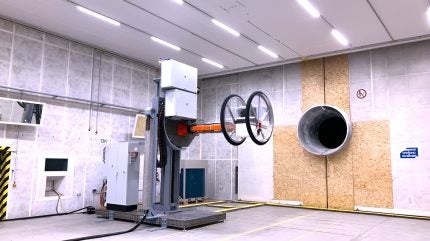
Urban air mobility (UAM) company Lilium has reached a milestone in the development of its eVTOL aircraft platform after completing the first tests of its electric jet propulsion unit.
The first series of tests saw the unit’s engines taken up to maximum thrust for the first time on its dedicated test bed at Lilium’s headquarters in Munich, Germany, further demonstrating the viability of the design.

Discover B2B Marketing That Performs
Combine business intelligence and editorial excellence to reach engaged professionals across 36 leading media platforms.
Stephen Vellacott, Lilium’s CTO, said: “Completion of the first engine test is a significant achievement for Lilium, demonstrating once again Lilium’s credentials as a world leader in the development of electric jet propulsion technology.”
The tests continue the company’s development process for its Lilium Jet eVTOL and come just before the business begins the initial series production of the propulsion unit at its assembly line near Munich.
Following the first test series, future units will be used for ground testing and integration into the first flight-ready seven-seat Lilium Jet.
Daniel Wiegand, Lilium co-founder and chief engineer for innovation and future programmes, said: “For my fellow co-founders and myself, the first test run of the Lilium Jet propulsion unit marks another high point in our journey.”

US Tariffs are shifting - will you react or anticipate?
Don’t let policy changes catch you off guard. Stay proactive with real-time data and expert analysis.
By GlobalData“It was our shared belief in the radical potential of electric jet technology that brought us together in 2015 and continues to drive Lilium on the way to transforming regional aviation.”
The electric engines have been developed and built by Lilium and its partners, including Denso, Honeywell, Aeronamic, and SKF.
Successful tests of the new system will be especially welcome for Lilium thanks to the company’s difficult development history with prototype aircraft, including a five-seat Lilium Jet which set fire during maintenance in 2020.
The system is one of many in development across the aviation industry as the sector embraces eVTOL technology as part of the future of sustainable air travel, with Lilium CEO Klaus Rowe recently saying UAM was “a $2bn affair, like it or not.”
Lilium’s success follows other announcements from some of the eVTOL sector’s leading players, including Joby’s reveal of its air taxi software and Archer’s first transition flight of its Midnight aircraft.





